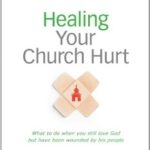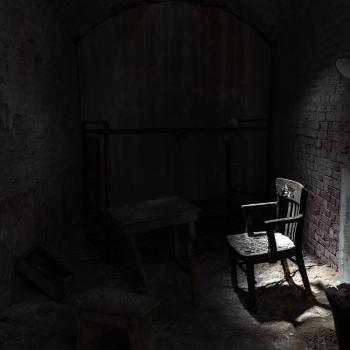11 While traveling to Jerusalem, he passed between Samaria and Galilee. 12 As he entered a village, ten men with leprosy met him. They stood at a distance 13 and raised their voices, saying, “Jesus, Master,have mercy on us!â€Â 14 When he saw them, he told them, “Go and show yourselves to the priests.â€Â And while they were going, they were cleansed. 15 But one of them, seeing that he was healed, returned and, with a loud voice, gave glory to God. 16 He fell face down at his feet, thanking him. And he was a Samaritan. 17 Then Jesus said, “Were not ten cleansed? Where are the nine? 18 Didn’t any return to give glory to God except this foreigner?â€Â 19 And he told him, “Get up and go on your way. Your faith has saved you.†(Luke 17:11-19)
My mom had a phrase to describe my sisters and me when we didn’t show the proper amount of gratitude: “Ungrateful Wretches.” Yep. Whenever one or all of us refused, or forgot, to be thankful – whether to her, God, or any adult who was kind and generous – she would refer to her beloved children as “Ungrateful Wretches.” We laugh at it now (and, truth be told, laughed at it then), but the description was accurate. It stuck then and still sticks today. The point she wanted to make came across loud and clear. In fact, I may or may not be guilty of using the same label for my own children.
I always think about mom’s two word description when I read this passage in Luke 17. Every year at Thanksgiving my mind goes to this text. Ten leprous men are healed of their disease. One comes back to say thanks to the Healer. The other nine are nowhere to be found. They are a bunch of “Ungrateful Wretches.”
If you think about it, however, the “other nine” were simply doing what Jesus told them to do. The one who comes back to say thanks and “give glory to God” (v. 15) is the one who disobeys.
Or does he?
Would Jesus commend disobedience?
He clearly told them to go and show themselves to the priests before they were healed (v. 14). This command implied healing. The law demanded healed lepers get permission from priests to be able to go back into society as a “normal” human. In other words, they would be keeping the law (showing themselves to the priests) after they had officially been healed of the leprosy. Jesus told all ten of them to show their healed bodies to the priests. The religious leaders would look them over and grant them status back into the social circles of the day.
One comes back – doesn’t do what Jesus says do – and is commended (v. 18).
The other nine – the “Ungrateful Wretches” – do what Jesus says to do and are reprimanded (v. 17).
Jesus said to go to the priests. Nine went. One didn’t.
Or did he?
Jesus came to fulfill the law. Jesus came to transform the law. Jesus, the Great High Priest, would replace what the Old Testament law was pointing to. The one healed leper who returned got it. With Jesus’ arrival, He was now THE Priest. No longer would anyone have to go through priests to have access to God or permission to be declared “clean.” Jesus made all of that obsolete. He fulfilled it. He not only was the Healer, but the One who granted access.
The one who returned not only returned with a grateful heart. He did exactly what Jesus said do. He went to THE Priest, acknowledging He got it. He understood what was happening with the arrival of Jesus.
In fact, the healed man didn’t even have to go to the Temple. Jesus told him to “go on your way” (v. 19). In other words, faith in Jesus is more than enough. He commands disease to leave and grants full access to God, and others, in relationship.
Nine were healed physically, but missed it spiritually. Sure. They were grateful for the healing. But they missed the point: the majesty and glory and sufficiency and beauty of Jesus.
This Thanksgiving, be grateful. Be specific in what Jesus has and is doing in your life. And when you tell Him how thankful you are, lean in a bit. He doesn’t just want a passing “thanks.” He did what He did and does what does and is who He is. . . in order to be with you. In relationship. He did it so you and He could have access to one another.
And if possible, make sure your mom overhears you express your gratitude. 🙂












